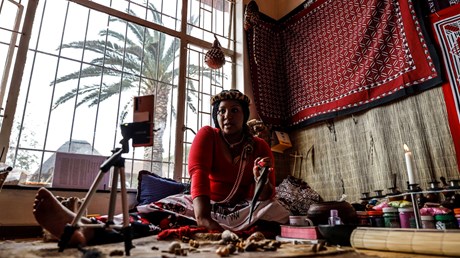Search Results for disagree
Articles
What The Bible Says - Good Samaritan's Penny Pulpit by Pastor Ed Rice
|
What The Bible Says Good Samaritan's Penny Pulpit by Pastor Ed Rice
|
What The Bible Says Good Samaritan's Penny Pulpit by Pastor Ed Rice
|
News
President Biden should be tested for performance-enhancing drugs before he sets foot on the debate stage. Agree or disagree? Give […]
|
Aaron Renn outlines individual, institutional, and missional strategies for adapting to a hostile culture.
 Rarely does an essay cause such a stir as Aaron Renn’s “The Three Worlds of Evangelicalism.” Published in First Things in 2022, Renn’s framework for describing Christianity’s fall into cultural disfavor since the 1960s elicited a wide range of responses, from wholehearted agreement to sympathetic skepticism to vociferous disagreement, and seemingly everything in between.Renn’s essay categorizes the recent history of evangelicalism in the United States into three periods, or worlds. In the positive world, Christianity was in a position of cultural dominance; most Americans, even those who were not particularly religious, recognized the importance of Christianity to the country’s collective moral fabric. In the neutral world, the broader culture came to see Christianity not as uniquely good, but still as a belief system and worldview doing more good than harm.Since the early 2010s—the dates themselves, Renn admits, are not binding—evangelicalism has been in the negative world. Here, culture and its elites are inherently suspicious of evangelical Christianity, especially when it challenges or conflicts with emerging, more attractive ideologies. Christians in the negative world, according to Renn, will encounter resistance to previously acceptable beliefs and behaviors. This resistance could take many forms, from simple yet pronounced disagreement all the way to the dreaded C-word: cancellation.Less than two years after his essay, Renn’s book, Life in the Negative World: Confronting Challenges in an Anti-Christian Culture, updates and elaborates on his framework and provides tangible resources for Christians concerned about this cultural transformation. Renn’s ...Continue reading... Rarely does an essay cause such a stir as Aaron Renn’s “The Three Worlds of Evangelicalism.” Published in First Things in 2022, Renn’s framework for describing Christianity’s fall into cultural disfavor since the 1960s elicited a wide range of responses, from wholehearted agreement to sympathetic skepticism to vociferous disagreement, and seemingly everything in between.Renn’s essay categorizes the recent history of evangelicalism in the United States into three periods, or worlds. In the positive world, Christianity was in a position of cultural dominance; most Americans, even those who were not particularly religious, recognized the importance of Christianity to the country’s collective moral fabric. In the neutral world, the broader culture came to see Christianity not as uniquely good, but still as a belief system and worldview doing more good than harm.Since the early 2010s—the dates themselves, Renn admits, are not binding—evangelicalism has been in the negative world. Here, culture and its elites are inherently suspicious of evangelical Christianity, especially when it challenges or conflicts with emerging, more attractive ideologies. Christians in the negative world, according to Renn, will encounter resistance to previously acceptable beliefs and behaviors. This resistance could take many forms, from simple yet pronounced disagreement all the way to the dreaded C-word: cancellation.Less than two years after his essay, Renn’s book, Life in the Negative World: Confronting Challenges in an Anti-Christian Culture, updates and elaborates on his framework and provides tangible resources for Christians concerned about this cultural transformation. Renn’s ...Continue reading... |
Churches are combating syncretism among millennials and Gen Z amid a rise of social media healers who call on ancestral spirits.
 Millions of Black South Africans seek guidance from sangomas, traditional healers or so-called witch doctors who use their spiritual gifts to connect with ancestors, prescribe herbs to heal illnesses, and throw dry bones to predict the future.It’s a centuries-old tradition that has continued in the majority-Christian country and has adapted for the internet age: A new breed of influencer sangomas are positioning themselves on social media as digital-entrepreneurial-spiritual seers.Church leaders across several major denominations in South Africa have long decried the practice as involving “evil, devilish, and unclean spirits.” But as the online sagomas draw in a mass audience of millennial Christians—a generation eager to “decolonize” their lives and reconnect to indigenous African roots—church leaders have new concerns around syncretism as well as internet scams.Condemnation of sangomas and African ancestral worship is the strongest cog uniting European-legacy churches like Anglicans, Baptists, and Catholics as well as African-initiated churches like the Zion Christian Church (ZCC), said Tendai Muchatuta, a cleric with the Apostolic of All Nations Church in Johannesburg.Both kinds of churches say the practice, despite its popularity, is not compatible with Christianity.The ZCC is the largest African-initiated church in Southern Africa, with about 12 million churchgoers, including some 9 million in South Africa. Bauleni Moloi, a ZCC pastor in Johannesburg, called sangomas “dubious agents of darkness out to sway Christians from the true focus on the gospel of the cross.”But younger Christians are more likely to disagree. Many millennial and Gen Z South Africans embrace ...Continue reading... Millions of Black South Africans seek guidance from sangomas, traditional healers or so-called witch doctors who use their spiritual gifts to connect with ancestors, prescribe herbs to heal illnesses, and throw dry bones to predict the future.It’s a centuries-old tradition that has continued in the majority-Christian country and has adapted for the internet age: A new breed of influencer sangomas are positioning themselves on social media as digital-entrepreneurial-spiritual seers.Church leaders across several major denominations in South Africa have long decried the practice as involving “evil, devilish, and unclean spirits.” But as the online sagomas draw in a mass audience of millennial Christians—a generation eager to “decolonize” their lives and reconnect to indigenous African roots—church leaders have new concerns around syncretism as well as internet scams.Condemnation of sangomas and African ancestral worship is the strongest cog uniting European-legacy churches like Anglicans, Baptists, and Catholics as well as African-initiated churches like the Zion Christian Church (ZCC), said Tendai Muchatuta, a cleric with the Apostolic of All Nations Church in Johannesburg.Both kinds of churches say the practice, despite its popularity, is not compatible with Christianity.The ZCC is the largest African-initiated church in Southern Africa, with about 12 million churchgoers, including some 9 million in South Africa. Bauleni Moloi, a ZCC pastor in Johannesburg, called sangomas “dubious agents of darkness out to sway Christians from the true focus on the gospel of the cross.”But younger Christians are more likely to disagree. Many millennial and Gen Z South Africans embrace ...Continue reading... |
Churches are combating syncretism among millennials and Gen Z amid a rise of social media healers who call on ancestral spirits.
 Millions of Black South Africans seek guidance from sangomas, traditional healers or so-called witch doctors who use their spiritual gifts to connect with ancestors, prescribe herbs to heal illnesses, and throw dry bones to predict the future.It’s a centuries-old tradition that has continued in the majority-Christian country and has adapted for the internet age: A new breed of influencer sangomas are positioning themselves on social media as digital-entrepreneurial-spiritual seers.Church leaders across several major denominations in South Africa have long decried the practice as involving “evil, devilish, and unclean spirits.” But as the online sagomas draw in a mass audience of millennial Christians—a generation eager to “decolonize” their lives and reconnect to indigenous African roots—church leaders have new concerns around syncretism as well as internet scams.Condemnation of sangomas and African ancestral worship is the strongest cog uniting European-legacy churches like Anglicans, Baptists, and Catholics as well as African-initiated churches like the Zion Christian Church (ZCC), said Tendai Muchatuta, a cleric with the Apostolic of All Nations Church in Johannesburg.Both kinds of churches say the practice, despite its popularity, is not compatible with Christianity.The ZCC is the largest African-initiated church in Southern Africa, with about 12 million churchgoers, including some 9 million in South Africa. Bauleni Moloi, a ZCC pastor in Johannesburg, called sangomas “dubious agents of darkness out to sway Christians from the true focus on the gospel of the cross.”But younger Christians are more likely to disagree. Many millennial and Gen Z South Africans embrace ...Continue reading... Millions of Black South Africans seek guidance from sangomas, traditional healers or so-called witch doctors who use their spiritual gifts to connect with ancestors, prescribe herbs to heal illnesses, and throw dry bones to predict the future.It’s a centuries-old tradition that has continued in the majority-Christian country and has adapted for the internet age: A new breed of influencer sangomas are positioning themselves on social media as digital-entrepreneurial-spiritual seers.Church leaders across several major denominations in South Africa have long decried the practice as involving “evil, devilish, and unclean spirits.” But as the online sagomas draw in a mass audience of millennial Christians—a generation eager to “decolonize” their lives and reconnect to indigenous African roots—church leaders have new concerns around syncretism as well as internet scams.Condemnation of sangomas and African ancestral worship is the strongest cog uniting European-legacy churches like Anglicans, Baptists, and Catholics as well as African-initiated churches like the Zion Christian Church (ZCC), said Tendai Muchatuta, a cleric with the Apostolic of All Nations Church in Johannesburg.Both kinds of churches say the practice, despite its popularity, is not compatible with Christianity.The ZCC is the largest African-initiated church in Southern Africa, with about 12 million churchgoers, including some 9 million in South Africa. Bauleni Moloi, a ZCC pastor in Johannesburg, called sangomas “dubious agents of darkness out to sway Christians from the true focus on the gospel of the cross.”But younger Christians are more likely to disagree. Many millennial and Gen Z South Africans embrace ...Continue reading... |
In tonight's case, some commentators will agree with the president's claim, while others will disagree. Each will try to convince us that their version of reality is our reality. This is because our “post-truth” culture believes that truth is perception. This viewpoint is becoming more dangerous now than at any time in human history.
|



 Links
Links  Articles
Articles  Blogs
Blogs  Videos
Videos  News
News  Colors
Colors 

 New links
New links

